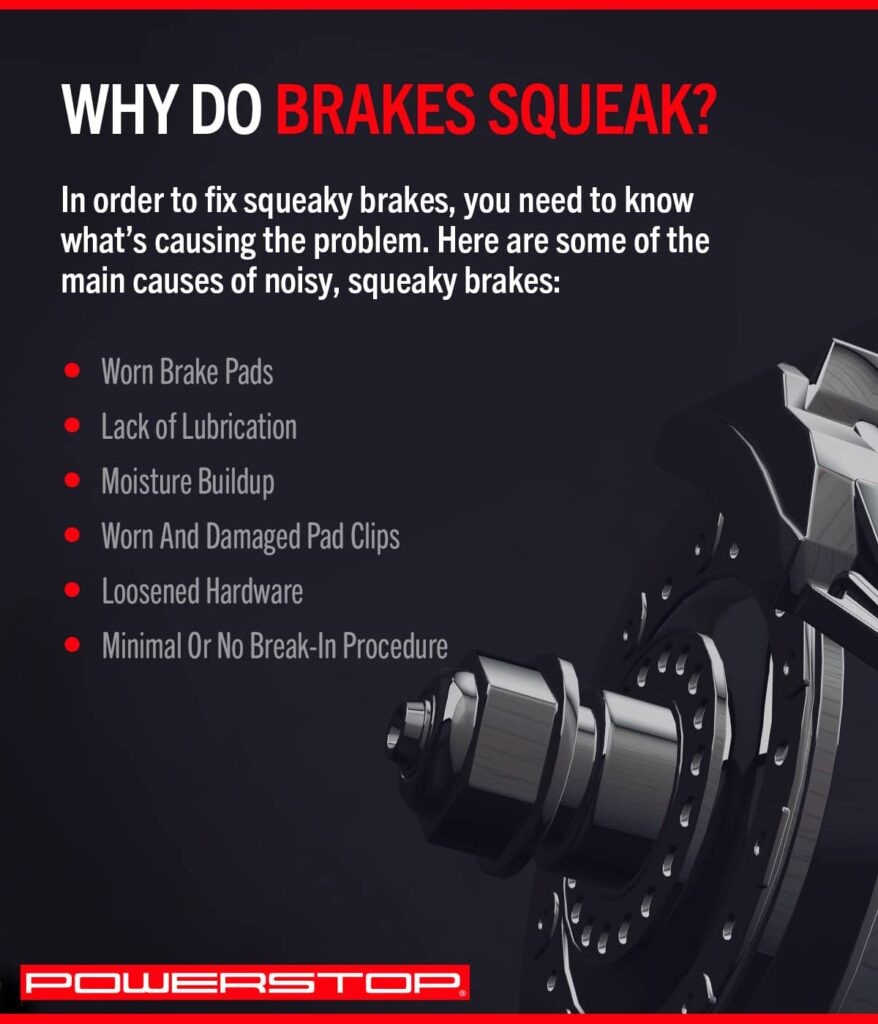That high-pitched squeal emanating from your brakes can be more than just annoying; it can signal a serious problem. Understanding why brakes squeal is crucial for maintaining your vehicle’s safety and performance. This article delves into the common causes of brake squeal and offers practical solutions to address the issue.
Common Reasons for Squealing Brakes
Several factors can contribute to brake squeal. While not every squeal indicates a critical issue, persistent noise warrants immediate attention. Here are some of the most frequent culprits:
Worn Brake Pads
Brake pads are designed with wear indicators that emit a high-pitched squeal when they become too thin. This audible alert signals the need for brake pad replacement. Typically, when pads wear down to about ⅛” – ¼” of remaining material, the indicator contacts the rotor, producing the squealing sound.
Damaged or Missing Pad Clips
Pad clips secure brake pads to the calipers and minimize vibrations. Damaged or missing clips can lead to excessive movement and squealing. Always replace pad clips when installing new brake pads to ensure proper function and prevent noise. PowerStop’s Brake Upgrade Kits conveniently include all necessary hardware.
Insufficient Lubrication
Lack of lubrication on caliper pins or brake pad backing plates can cause friction and squealing. Rust on the rotor can also create noise when rubbed by the brake pads. Regularly inspecting and lubricating these components can prevent squealing and ensure smooth braking operation.
Loose Brake Hardware
The braking system consists of various components, including hoses, clips, pins, calipers, pads, and rotors. Loose components can vibrate and generate squealing sounds. Regularly inspecting and tightening loose hardware can eliminate this noise.
Improper Break-In Procedure
New brakes require a proper break-in period to ensure optimal performance and prevent noise. Following the manufacturer’s recommended break-in procedure is crucial for bedding in the brake pads and rotors correctly. PowerStop brake pads include break-in instructions on the packaging.
Solutions for Brake Squeal
Addressing brake squeal often involves simple DIY solutions:
Lubricate Brake Components
Apply brake lubricant to the edges of the brake pads where they contact the caliper. Clean and lubricate the caliper slide pins. Also, apply a small amount of lubricant to the backing plates of the brake pads.
Important: Never apply lubricant to the rotor or the friction surface of the brake pad. This can severely compromise braking performance and create a dangerous driving situation.
Perform the Break-In Procedure Correctly
If squealing occurs after installing new brakes, ensure the break-in procedure was performed correctly. This process involves a series of controlled stops and accelerations to properly mate the brake pads and rotors. Refer to the manufacturer’s instructions for specific break-in procedures.
Inspect Brake Hardware
Thoroughly inspect all brake hardware components before and after the break-in procedure. Ensure all parts are secure, in good condition, and properly positioned. Tighten any loose components and replace any damaged parts.
Conclusion
Brake squeal can indicate a range of issues, from minor lubrication problems to worn brake pads. Addressing the underlying cause is essential for safe and efficient braking. By understanding the common causes of brake squeal and implementing the suggested solutions, you can maintain your vehicle’s braking system and enjoy a quieter, safer ride. If DIY solutions don’t resolve the issue, consult a qualified mechanic for professional diagnosis and repair.
